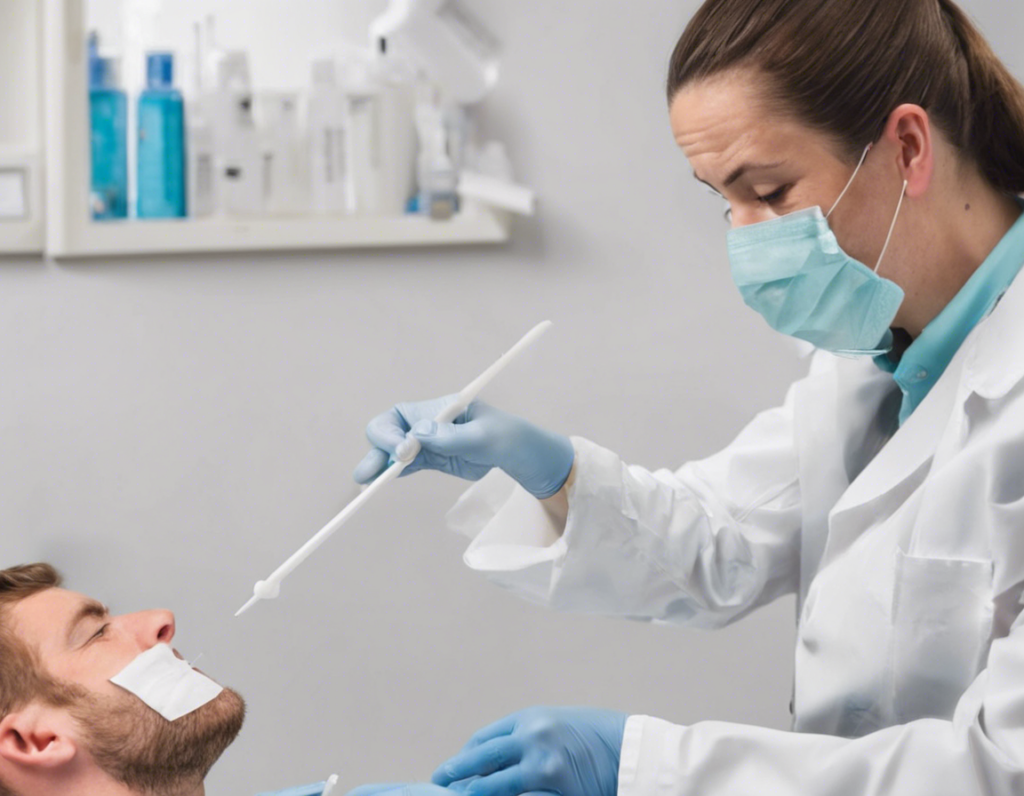Are you facing a swab test and feeling anxious about the results? Whether it’s for a new job, a promotion, or any other reason, passing a swab test is essential. Swab tests, also known as oral fluid drug tests, are becoming increasingly popular due to their non-invasive nature and ability to detect recent drug use. Fortunately, there are several strategies you can employ to increase your chances of passing a swab test successfully.
Understanding Swab Tests
Before diving into the tips for passing a swab test, it’s essential to understand how these tests work. Swab tests involve collecting a saliva sample from the inside of your mouth using a swab. This sample is then analyzed to check for the presence of drugs or their metabolites. Swab tests are usually used to detect recent drug use, typically within the past 24-48 hours, depending on the substance.
Tips for Passing a Swab Test
1. Abstain from Drug Use
The most effective way to ensure you pass a swab test is to abstain from drug use altogether. Remember that different drugs can be detected in saliva for varying lengths of time, so stopping drug use well in advance of the test is crucial.
2. Stay Hydrated
Drinking water can help to flush drugs from your system and dilute drug metabolites in your saliva. However, it’s essential not to overhydrate, as this may raise suspicions during the test. Aim to drink a sufficient amount of water in the days leading up to the test.
3. Maintain Good Oral Hygiene
Brushing your teeth regularly, using mouthwash, and flossing can help reduce the presence of drugs in your saliva. Some drug metabolites can be trapped in oral fluids, so keeping your mouth clean can lower the chances of a positive result.
4. Avoid Certain Foods and Substances
Certain foods and substances can potentially interfere with swab test results. Avoid consuming poppy seeds, hemp products, and alcohol before the test, as they may lead to false positives for opioids, THC, or ethanol.
5. Use a Mouthwash
Specialized detox mouthwashes designed to mask drug metabolites in saliva can be effective in passing a swab test. These mouthwashes typically create a temporary barrier in the mouth, preventing drugs from being detected. Follow the instructions carefully for the best results.
6. Chew Gum
Chewing sugar-free gum or sucking on mints before the test can help stimulate saliva production and dilute drug metabolites. However, make sure the gum or mints do not contain sugar, as this can affect the test results.
7. Time Your Last Meal
Eating a fatty meal before the test may help reduce the concentration of drugs in your saliva. However, make sure to time this meal correctly, as it should be consumed a few hours before the test to be effective.
8. Be Prepared and Confident
Mental preparation is essential when facing a swab test. Stay calm, confident, and cooperative during the test. Avoid acting nervous or suspicious, as this may raise doubts about your test results.
9. Know Your Rights
It’s essential to know your rights regarding swab tests. Understand the testing process, the substances being tested for, and your options if the results come back positive. Being informed can help you navigate the testing procedure more effectively.
10. Follow Test Instructions Carefully
Listen carefully to the instructions provided by the test administrator. Follow all guidelines regarding swabbing, sample collection, and any additional steps required during the test. Disregarding instructions can lead to inconclusive or false results.
Frequently Asked Questions (FAQs)
1. How accurate are swab tests in detecting drug use?
Swab tests are considered highly accurate in detecting recent drug use, typically within the past 24-48 hours. However, like all tests, they are not foolproof and can yield false positives in some cases.
2. Can secondhand smoke affect swab test results?
Inhaling secondhand smoke is unlikely to result in a positive swab test for most drugs. However, prolonged exposure to heavy smoke in a confined space can potentially lead to trace amounts of drugs being detected.
3. Do swab tests detect all types of drugs?
Swab tests can detect a variety of drugs, including marijuana, cocaine, amphetamines, opiates, and benzodiazepines. However, the specific substances tested for can vary depending on the testing requirements.
4. How long do drugs stay in saliva for swab tests?
The detection window for drugs in saliva can vary depending on the substance and individual factors. In general, most drugs can be detected in saliva for up to 24-48 hours after use.
5. Can I refuse to take a swab test?
It depends on the circumstances. In some situations, refusal to take a swab test can result in consequences such as a failed test or job termination. It’s important to understand the implications of refusing a swab test before making a decision.
In conclusion, passing a swab test successfully requires careful preparation, knowledge of the testing process, and adherence to specific strategies to minimize the risk of a positive result. By following the tips outlined above and staying informed, you can increase your chances of passing a swab test with confidence.
